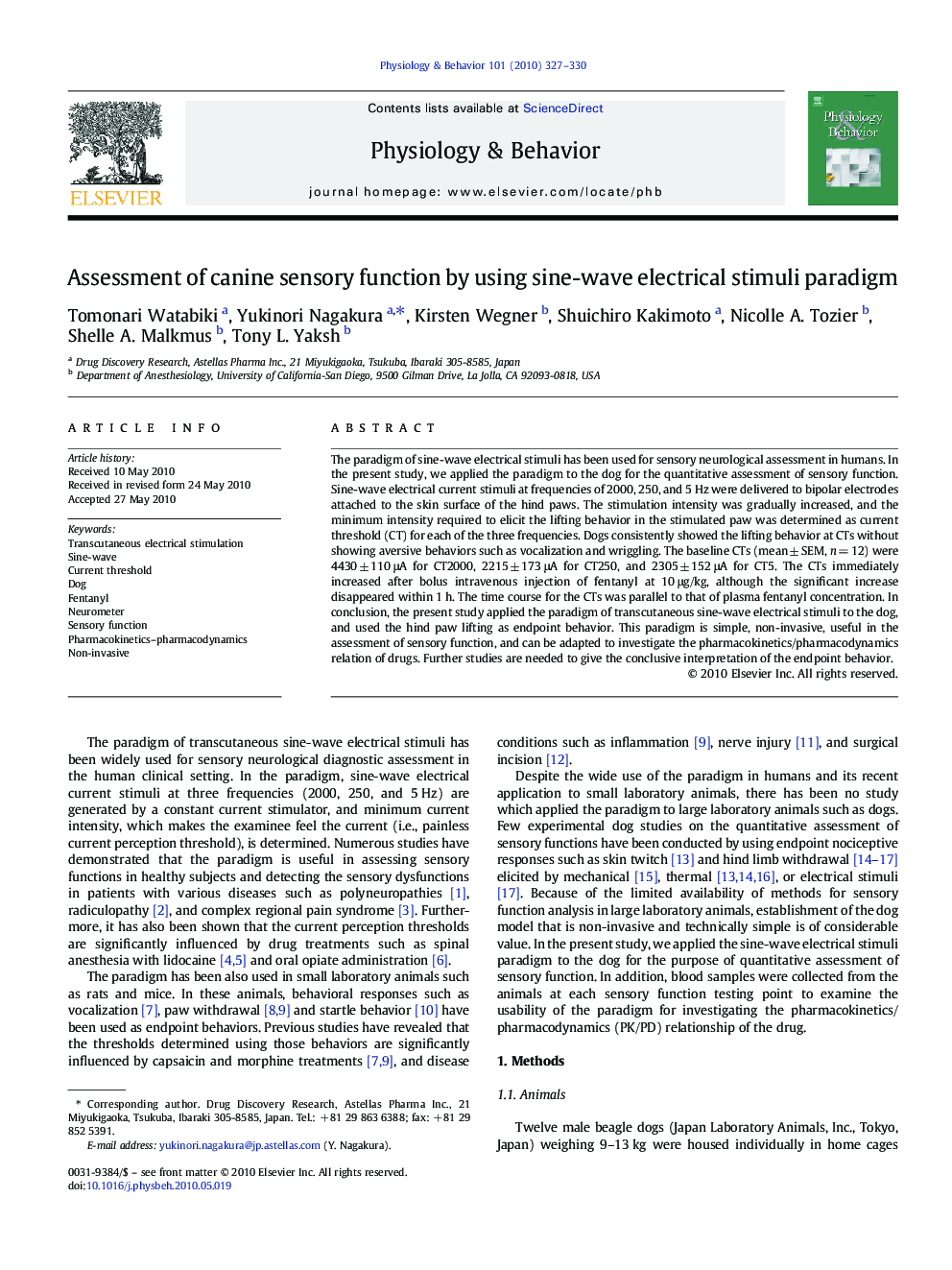| کد مقاله | کد نشریه | سال انتشار | مقاله انگلیسی | نسخه تمام متن |
|---|---|---|---|---|
| 2844603 | 1166352 | 2010 | 4 صفحه PDF | دانلود رایگان |
عنوان انگلیسی مقاله ISI
Assessment of canine sensory function by using sine-wave electrical stimuli paradigm
دانلود مقاله + سفارش ترجمه
دانلود مقاله ISI انگلیسی
رایگان برای ایرانیان
کلمات کلیدی
موضوعات مرتبط
علوم زیستی و بیوفناوری
بیوشیمی، ژنتیک و زیست شناسی مولکولی
فیزیولوژی
پیش نمایش صفحه اول مقاله

چکیده انگلیسی
The paradigm of sine-wave electrical stimuli has been used for sensory neurological assessment in humans. In the present study, we applied the paradigm to the dog for the quantitative assessment of sensory function. Sine-wave electrical current stimuli at frequencies of 2000, 250, and 5 Hz were delivered to bipolar electrodes attached to the skin surface of the hind paws. The stimulation intensity was gradually increased, and the minimum intensity required to elicit the lifting behavior in the stimulated paw was determined as current threshold (CT) for each of the three frequencies. Dogs consistently showed the lifting behavior at CTs without showing aversive behaviors such as vocalization and wriggling. The baseline CTs (mean ± SEM, n = 12) were 4430 ± 110 μA for CT2000, 2215 ± 173 μA for CT250, and 2305 ± 152 μA for CT5. The CTs immediately increased after bolus intravenous injection of fentanyl at 10 μg/kg, although the significant increase disappeared within 1 h. The time course for the CTs was parallel to that of plasma fentanyl concentration. In conclusion, the present study applied the paradigm of transcutaneous sine-wave electrical stimuli to the dog, and used the hind paw lifting as endpoint behavior. This paradigm is simple, non-invasive, useful in the assessment of sensory function, and can be adapted to investigate the pharmacokinetics/pharmacodynamics relation of drugs. Further studies are needed to give the conclusive interpretation of the endpoint behavior.
ناشر
Database: Elsevier - ScienceDirect (ساینس دایرکت)
Journal: Physiology & Behavior - Volume 101, Issue 3, 5 October 2010, Pages 327-330
Journal: Physiology & Behavior - Volume 101, Issue 3, 5 October 2010, Pages 327-330
نویسندگان
Tomonari Watabiki, Yukinori Nagakura, Kirsten Wegner, Shuichiro Kakimoto, Nicolle A. Tozier, Shelle A. Malkmus, Tony L. Yaksh,